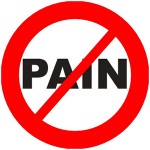 What does ‘feeling better’ look like?
What does ‘feeling better’ look like?
You probably don’t have to ask yourself that question when you have physical pain. When you have a pounding toothache, you Google ‘dentist in my town,’ or you phone your friends and ask who they use. You will probably book an appointment with the professional with the most stars, highest friend recommendations, lowest price, and earliest opening (not necessarily in that order). Most important, you will already know exactly what you want as an outcome: no more tooth pain.
Should emotional pain be any different? I don’t think so. Whether we are experiencing emotional or physical pain, we want relief. According to research you can get varying degrees of relief from different forms of treatment including diet and exercise, acupuncture, counseling therapy, meditation, medication, or a combination of all of the above. If your emotional pain is a manageable two or three out of a high score of ten, you might even take your time to explore different options and develop what are commonly known as coping skills. Ideally you would work those coping skills into a daily regimen of self-care (think daily tooth brushing) to keep emotional pain manageable.
If your emotional pain started creeping past manageable to a level-10-toothache pain, however, your need for relief would become urgent. Your criteria for a counseling professional would resemble the criteria you had for your dentist: expert skills, affordable price, accessible location, available immediately, and most important, the ability to relieve your pain.
Counselors are highly skilled professionals trained in the art of emotional pain relief. We use our skills to promote insight in our clients so they feel better. When they feel better, we terminate treatment. If they don’t feel better, then we look at our treatment plan and make adjustments. If we make adjustments and our clients are still not feeling better, we help them find a specialist who can meet their needs and hopefully accomplish what we could not.
What we’re not so good at is explaining how what we do alleviates pain.
So when talking to clients, perhaps a counselor should think more like a dentist and clearly explain what he does and what to expect from his sessions. This ‘solution-focused and goal-oriented’ approach could begin with the first phone call. Once the client explained her emotional pain, he would be able to tell her three things:
- Whether or not counseling with him could help her specific issue,
- A step by step map of the first three to four sessions, and
- Specific tools she would gather by that fourth session that might offer symptom relief.
When we have physical or emotional pain, we all want the same thing: pain relief. Counselors need to be able to explain just as well as a dentist how their skills can help make that happen.




